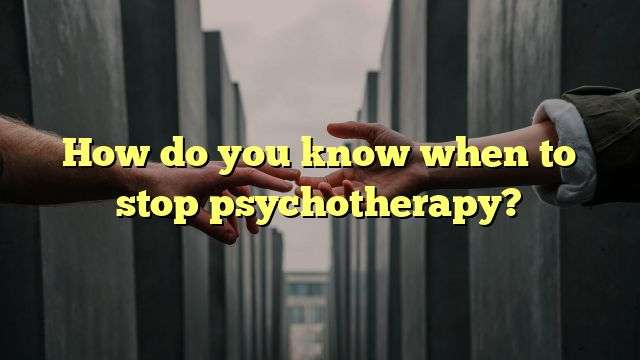When is the Right Time to Stop Psychotherapy?
Psychotherapy is a powerful tool for personal growth and development that can help people overcome life’s challenges and make positive changes in their lives. But when is the right time to stop? There is no one-size-fits-all answer, as the right time to end therapy will depend on a variety of factors, including the individual’s goals, progress, and overall well-being.
You Accomplished the Goals You Set When You Began
One of the most obvious signs that it might be time to end therapy is when you have achieved the goals that you set when you began. It is important to remember that progress is not always linear and that it can sometimes take longer to achieve your goals than you initially anticipated. If you have made significant progress and feel like you have accomplished what you set out to do when you began therapy, it may be time to consider stopping.
You’ve Reached a Plateau
If you have been in therapy for an extended period of time and feel like you have reached a plateau, it may be time to reassess your goals and consider stopping therapy. This is especially true if you have been in therapy for more than a year and your progress has slowed or stalled. It may be beneficial to work with a different therapist or to explore other therapeutic modalities in order to continue making progress.
You Don’t Have Anything to Talk About
If you have been in therapy for a while, it may be time to consider ending therapy if you don’t have anything to talk about. This can be a sign that you have already discussed the topics at hand or that you have reached a point where you are no longer gaining any insights or benefits from the process. If you feel like you have exhausted the topics of discussion, it may be time to end therapy.
Your Needs Have Changed Throughout the Course of Therapy
Your needs will change over the course of therapy, and it is important to recognize when those needs have changed and it is time to end therapy. For example, if you began therapy to address a specific issue and that issue has been resolved, it may be time to stop therapy. Additionally, if you have shifted your focus to a different area of your life, it may be beneficial to find a new therapist who specializes in that area in order to continue making progress.
Conclusion
In conclusion, the right time to stop psychotherapy will depend on a variety of factors, including the individual’s progress, goals, and overall well-being. If you have accomplished the goals you set when you began, reached a plateau in your progress, or do not have anything to talk about, it may be time to end therapy. Additionally, if your needs have changed throughout the course of therapy, it may be beneficial to find a new therapist who specializes in the area that you are now focusing on. Ultimately, it is important to consider all of these factors and make an informed decision about when the right time to end therapy is.
